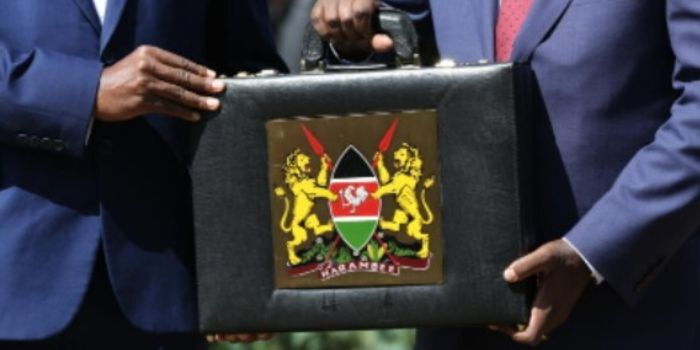Treasury Cabinet Secretary John Mbadi is set to present the 2025/2026 national budget before Parliament on Thursday, June 12, at 3 p.m. — a moment that will shape Kenya’s economic direction for the next year. The Ksh4.23 trillion budget reflects both ambitious goals and difficult trade-offs in a season of fiscal tightening and public concern over the rising cost of living.
The presentation will go beyond outlining spending plans; it will also provide an update on Kenya’s economic performance, set revenue targets, propose tax measures, and shed light on how the government intends to finance the budget deficit. Mbadi’s statement will be accompanied by key documents, including the Budget Estimates Book, the 2025 Finance Bill, the Appropriations Bill, the Budget Policy Statement, and the Medium-Term Debt Strategy.
A Leaner but Larger Budget
Initially projected at Ksh4.5 trillion, the budget was revised down to Ksh4.23 trillion by the Cabinet, signaling a shift toward fiscal consolidation. Yet, the figure still represents a notable increase from last year’s Ksh3.9 trillion, indicating continued investment in key sectors despite a cautious outlook.
Of the total budget:
-
Ksh3.09 trillion is earmarked for recurrent spending,
-
Ksh725.1 billion for development projects,
-
Ksh436.7 billion for county governments, and
-
Ksh5 billion is reserved for emergencies under the Contingency Fund.
Winners and Losers in Budget Allocations
The Education sector stands out as a major winner, with an allocation of Ksh850.7 billion, up from Ksh656.6 billion last year. The significant Ksh194 billion boost is expected to fund infrastructure upgrades, curriculum reforms, and hiring of teachers to meet growing demand across the country.
In contrast, the Health sector has taken a hit. Its allocation is down by Ksh20 billion to Ksh127 billion, raising concerns about the future of critical programmes, including the rollout of Universal Health Coverage.
Meanwhile, the Executive arm of government is set to receive Ksh2.494 trillion, marking a Ksh522 billion increase. Parliament's budget has risen slightly, while the Judiciary will experience a modest cut of Ksh2 billion, bringing its allocation to Ksh25.7 billion.
Sectors like Energy, Infrastructure, and ICT are poised for notable funding, aligned with the government’s development agenda. Others will face reductions as the Treasury tries to strike a balance between growth and sustainability.
Revenue Ambitions and Fiscal Strategy
To support the expanded spending plan, the government hopes to raise Ksh2.835 trillion in tax revenues — an increase of over Ksh200 billion from the current year’s target. This push will be guided by the Medium-Term Revenue Strategy, which seeks to broaden the tax base, close loopholes, and enhance compliance through technology and efficiency reforms.
Tax reform will be underpinned by the principles of fairness, progressivity, and social protection — a delicate balancing act given rising public scrutiny over recent proposals in the Finance Bill.
A Moment of National Attention
Thursday’s budget reading is more than a procedural formality — it is a national event. The statement will be broadcast live, allowing Kenyans from all walks of life to follow and react in real time. It comes amid heightened civic engagement and growing demands for government accountability, especially on public debt and service delivery.
Parliament will review the proposals in detail, with the Budget and Appropriations Committee playing a central role in fine-tuning the estimates before final approval. As required by law, the budget must be passed before the start of the new fiscal year on July 1.
Looking Ahead
At its core, the 2025/26 budget aims to strengthen fiscal discipline while maintaining investment in critical services. The government’s stated priorities include debt reduction, economic inclusivity, and sustainable growth — but whether these goals can be achieved will depend on execution, transparency, and the public’s willingness to bear the cost of reform.
For now, all eyes are on Parliament and Treasury as the country awaits what CS Mbadi has to say — and what it will mean for households, businesses, and the future of Kenya’s economy.

